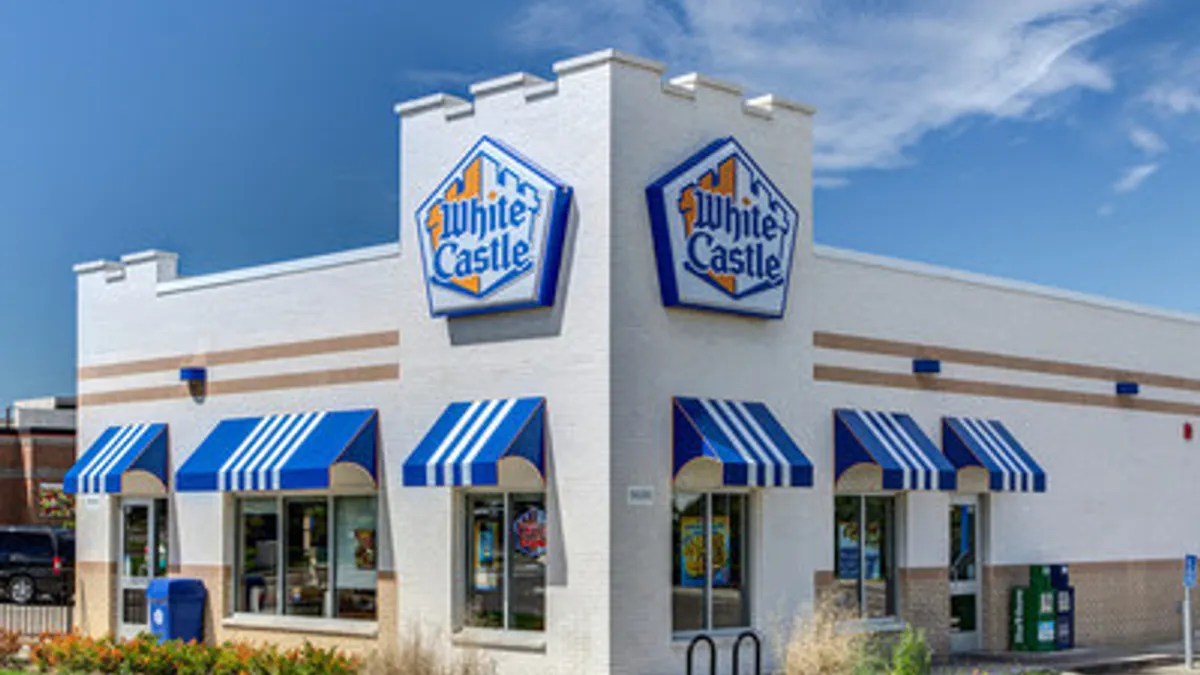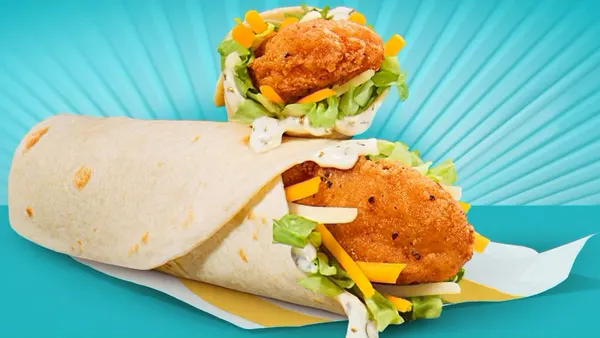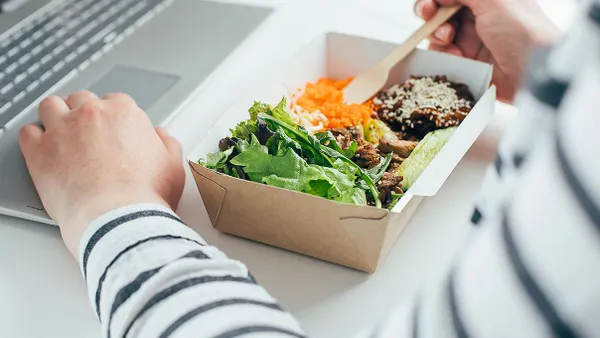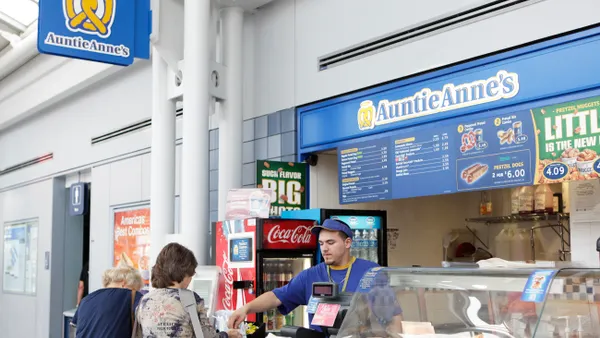Dive Brief:
- White Castle will deliver some of its Uber Eats orders using Coco Robotics delivery bots in Chicago, Coco announced in a Monday press release.
- The robots and Uber Eats systems are integrated with White Castle’s point-of-sale system through Checkmate, which provides the brand with updates on delivery status.
- Coco has been working with Uber Eats to deliver in select cities, including Los Angeles, since last year, and has been working with both Uber Eats and DoorDash in Chicago. The robotics firm said its operations in the Windy City have been an important proving ground for its technology.
Dive Insight:
White Castle said the robots could speed up throughput at restaurants by eliminating some of the operational complexities of third-party delivery — namely handing orders off to delivery drivers, whose vehicles may impede other customers.
“By testing Coco's robots at a high-traffic location, we're seeking to ease congestion, speed up service, and allow our team to stay focused on quality — helping us serve more customers, more efficiently,” Chris Shaffery, vice president of operations at the burger brand, said.
Chicago White Castle delivery customers may be paired directly with a Coco robot through the Uber Eats app, without additional fees or steps, according to the press release.
Coco’s robots have completed more than 500,000 deliveries in cities ranging from Los Angeles and Miami to Helsinki and Chicago, according to the press release. While that may sound impressive, Uber logged more than 3 billion trips across its rideshare and delivery segments in Q1 2025 according to an earnings release.
While rideshare comprises a plurality of bookings, the scale of Uber’s delivery business is still evident from its 10-Q: gross bookings for delivery accounted for $20.4 billion in value and generated $3.8 billion in revenue for Uber in Q1, compared to $21.2 billion in rideshare books and $6.5 billion in rideshare revenue. The size of Uber’s delivery business indicates delivery bots still represent a very small part in the operations of the big aggregators, and any impact on local labor markets will likely be limited.
White Castle isn’t the first brand to announce a specific robotic delivery partnership through Uber Eats — Shake Shack signed a similar deal for Los Angeles with Serve Robotics last year. Uber’s robotics strategy hinges on deploying bots through a variety of partners — both Serve and Coco are expanding their operations with the delivery giant — in an effort to constrain labor costs and improve its profitability.
Earlier this year, DoorDash announced a similar program with Coco, which could help DoorDash defend market share in those areas if delivery robots actually do scale up dramatically.
Coco recently raised $80 million to build its fleet up to 10,000 bots. But generating substantial revenue off of delivery fees for bespoke, capital-intensive robots may prove difficult. While Coco is not publicly traded, rival robotics firm Serve is, and that company’s most recent 10-Q show the economics of the robotic delivery segment are far from settled: Serve reported a net loss of more than $13 million in the most recent quarter and generated just $440,465 in revenue.















